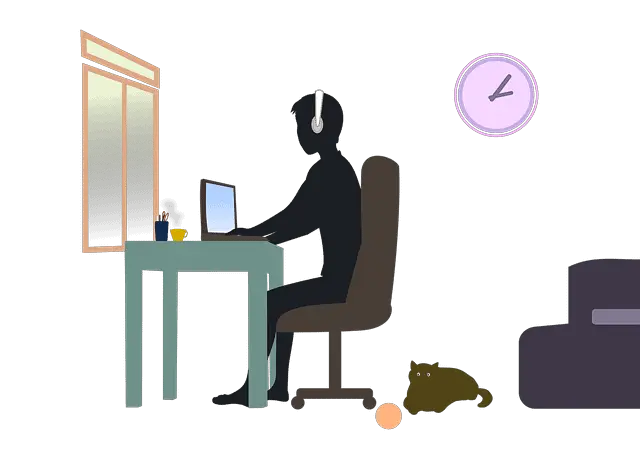If there is one thing that can be looked at as a positive improvement due to the whole COVID-19 situation, it is the fact that the majority of people now work from home. Remote work is a privilege that not all professions offer. However, if you have not worked from home before, there are some changes you will have to make. Furthermore, working from home also has plenty of pitfalls you should try to avoid. With that in mind, here is a handy practical guide to transitioning to remote work. By sticking to these rules, the entire transition should go smoothly and without any issues.
Where did all the time come from?
When working from home , the first thing you will notice is how much time you actually have. When you go to the office every day, you lose a lot of time on the commute. Furthermore, your work activities are spread throughout the day, and you have to be at your office no matter how much work you have to do.
, the first thing you will notice is how much time you actually have. When you go to the office every day, you lose a lot of time on the commute. Furthermore, your work activities are spread throughout the day, and you have to be at your office no matter how much work you have to do.
Well, remote work changes all of that. One of the biggest benefits of working from home is that you will become a master of your time. You are not constrained by your working hours and there is no commute. You can work whenever you want!
Nevertheless, there are a couple of unpleasant pitfalls you should avoid. First of all, there is the danger of working all day long. Since you can spread out your activities as you see fit, you might often work more than you need. Many people notice that they don’t need a break in the typical sense. They are always home, so there is no need to take a break. And so, in the beginning, they often worked for more than 8 hours. This can pose an issue. You must learn to manage your time and know when to stop. Do not overwork yourself.
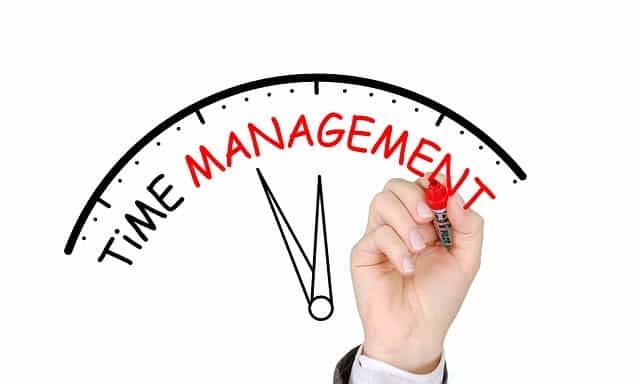
A smart approach to managing your time is to intentionally schedule your time for specific activities. Having a loose approach is not a good practice. Usually, all meetings take place between 11 AM and 2 PM. Furthermore, it is a fact that you are more focused at the beginning of your shift than towards the end. With that in mind, schedule some focused time for yourself as soon as your shift starts. That’s when you will organize your day, sort out the activities, and spread out the workload equally to cover your working hours.
Managing time is one of the most important aspects when working from home. If you do it properly, you will have enough time to not only finish your work activities but also do some chores and increase your overall productivity. Consequently, you will have more time to relax and enjoy the rest of the day after your shift is over.
What to do with equipment for your office space?
Depending on the nature of your job, you might have office equipment necessary for your work. Often this includes a computer, a printer, office files, folders, etc.
When transitioning to remote work, you will still need all the equipment to do your work. The safest approach is to hire movers to empty the entire office space and move all of the equipment to your place. They will be methodical and effective, and you won’t risk damaging any of the equipment in the process.
and move all of the equipment to your place. They will be methodical and effective, and you won’t risk damaging any of the equipment in the process.
The best of all, it probably won’t cost much, since it will not be a large-scale move.
How to set up your office space to be more productive?
Your office space can greatly affect your productivity and energy levels. The biggest mistake you can make when working from home is to work from your bed. You will feel tired all day long, and you won’t be productive. With that in mind:
• get up
• get dressed
• sit at a desk
• focus on your work.
One of the reasons why people work from the office is because they can work without any distractions. When working from home, everything around you is a distraction. You typically do not associate your home with a working environment.
To remedy this, you must create a working space for yourself. Even if you are living in a small apartment, find a corner where you can set up your home office, and always work from there.
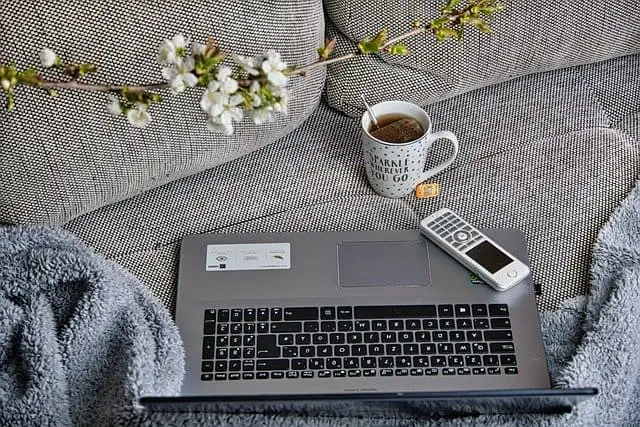
Another important rule you must stick to is to finish all tasks within the deadline. Since you are at home at all times, you might feel tired at one point and decide to postpone a task for an hour or two. Taking long breaks during your working hours is not advisable, even if you manage to finish everything you have for that day. This will directly affect your productivity and energy levels. If you are struggling with these, there are plenty of ways to increase productivity when working .
.
Best practices when working from home
These tips should help you to not only be more productive but to also increase the overall quality of your life and help you be more organized.
Always make a plan at the start of your shift
Remember the talk about allocating some time to focus and organize your day? This step is crucial, so stick to it every day. Having a plan is imperative if you want to be productive. You should make a list of all the tasks you have for a particular day. Then, separate them into two categories:
• tasks due today
• anything that can be finished within the next few days
This is extremely helpful if you have a lot of work to do. You will have to teach yourself how to prioritize. If you fail to do this step, you will find yourself working overtime just to meet deadlines. A pleasant experience of working from home will turn into a nightmare.

The next important step is to estimate the amount of time necessary for each task. It might be tricky at the beginning, but you will quickly get the hang of it.
Stick to your plan!
What is the point of making a plan if you don’t stick to it?
When you first start working from home, the toughest part is sticking to the schedule.Too many distractions around you will take over at some point, and you might find yourself slacking at work. That can become a big issue! As soon as you notice you are failing to stick to your plan, make immediate changes.
Check if your plan is too difficult to follow and if you need to make some changes. Remember not to overwork yourself.
Here is what to do if you don’t have plenty of work!
You will notice that sometimes you simply don’t have anything else left to do for that day. You completed all of your tasks, and there is so much free time.
Well, this is the perfect time to organize your work for days to come. Spend an hour to go through your files and think about your future tasks. If you apply this practice, you will have more free time on your hands.
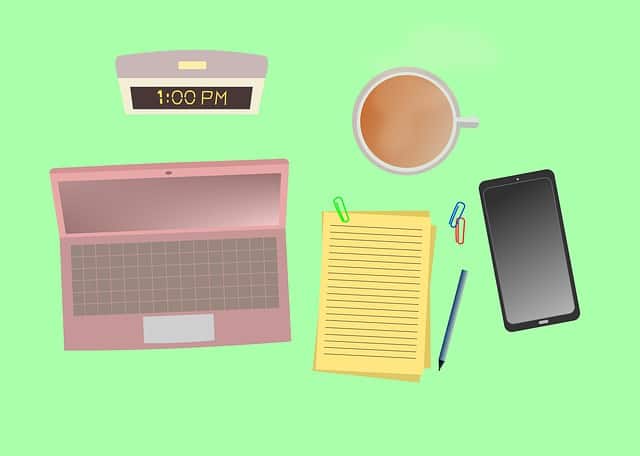
If you have little work to do for one day, you can finish everything as soon as possible. That is a much better option than to postpone it for later. However, if your company has monitoring apps to track what you do, find a good way to spread out your tasks during your shift. Always keep yourself occupied, and inform your manager that you have time for additional activities. It is better for them to know you have free time, than to keep that a secret only to be discovered later.
Do not work in a mess!
Staying at home during quarantine could result in some nasty habits coming up to the surface. One of the challenges you will have is keeping the workspace neat and organized. Since you are at home, it is a bit difficult to visually separate your workspace from the rest of your home. Well, you should give it a go either way.
The first tip is to get rid of clutter in your workspace . Do not put anything that is not work-related in your working environment. This step will help you to have a sense of peace and tranquility when you work.
. Do not put anything that is not work-related in your working environment. This step will help you to have a sense of peace and tranquility when you work.
Second, keep all of the work equipment within reach. Try not to get up much when working, because that will affect your effectiveness and workflow.
Lose the distractions!
If you want to relax and entertain yourself for a few minutes, set your breaks, and honor that time. However, when you are working, do not reach out for your phone, watch the TV, or read a book. This is not only lowering your productivity but is also very unprofessional.
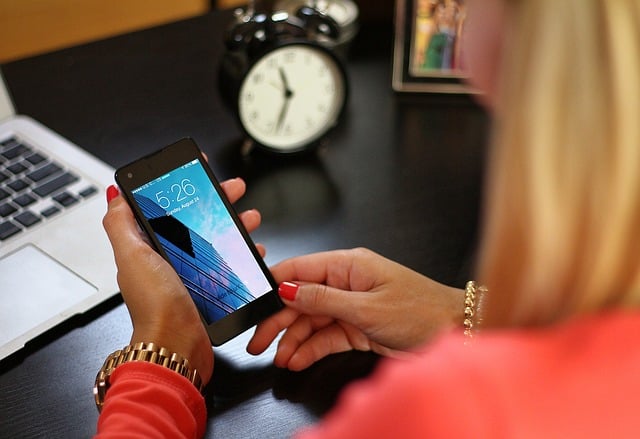
Over-communicate everything you do!
This is a nice habit to pick up, and it is also a very useful one! Have in mind that, when working from home, you don’t have your supervisor, manager, or team leader to look over your shoulder all day long. Even though you will feel more relaxed, there is a downside to that – they will not be able to properly evaluate the quality of your work!
Sure, you are getting your tasks completed, but there is no human contact and they cannot see how passionately you work. A good workaround for this issue is to over-communicate everything you do. Send update e-mails and messages about every step you completed. You may think that this could turn into spamming, but not if you divide your work into sizeable chunks. Keep them updated every 45 minutes to one hour, and you will be fine.
Invest in video and audio equipment!
Since you will be working from home, all of your communication will be done via online meetings. It is absolutely imperative to have high-quality video and sound. Your manager and your teammates should be able to see you and hear you clearly and without interruptions.
It is also a good idea to acquire a second monitor. It will make work from home a lot easier.
As an additional tip, if you are having a video call, be mindful of your background.
Tips to make working from home enjoyable!
Even though we suggested you lose all distractions when working from home, that does not mean you shouldn’t try and make this experience enjoyable. After all, working from home has so many advantages, so why not use them.
Many people like to play music in the background while they work because it keeps them focused. You could also have a plant on your desk and a figurine of your favorite superhero to urge you on. This can keep you entertained when you feel stressed.
As the ultimate advice, use this opportunity to enjoy your hobbies. Since you are working from home and will have a lot more time for yourself, work on your skills, and use your free time to do all the things you could not do before!
Remember to take scheduled breaks!
Breaks are essential when working from home. You should stand up and stretch your legs every 30 minutes. You can also wash your eyes and take a few minutes to walk outside and breathe in some fresh air.
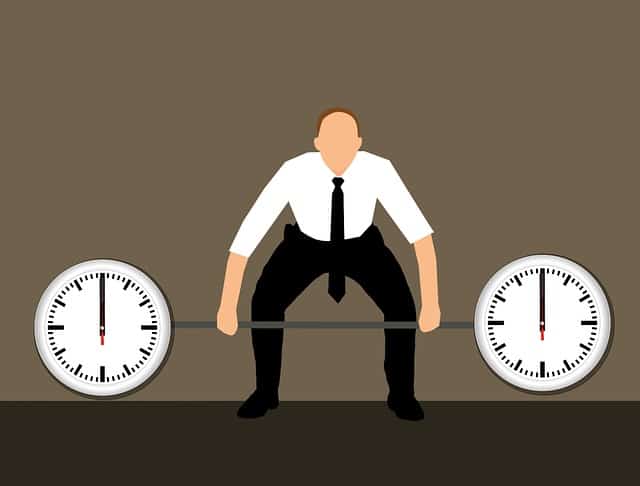
Keep your workspace well lit and fresh!
The more natural light you have, the better for your eyes. It is good advice to set your workspace close to a window, so you can open it and let the fresh air in the room from time to time.
Monitor your eating habits!
Staying at home all day long may result in gaining weight. This is also true if you are working from home. Having snacks from time to time is okay, but do not step over the line. Make sure to eat healthy food and exercise every day. Furthermore, stay hydrated. Your eating and drinking habits greatly affect your mood.
A practical guide to transitioning to remote work – done!
I truly hope that this practical guide to transitioning to remote work gave you enough information, so you can create a productive working environment. Working from home is a fantastic opportunity to create your ideal workplace . Use it to the best of your abilities, and remember to enjoy every bit of it!
. Use it to the best of your abilities, and remember to enjoy every bit of it!
Author bio:
Source:
https://cdn.pixabay.com/photo/2016/02/17/14/24/work-desk-1205159_960_720.jpg
https://cdn.pixabay.com/photo/2020/03/29/11/27/home-office-4980353_960_720.jpg
https://cdn.pixabay.com/photo/2020/01/03/15/38/work-4738431_960_720.jpg
https://cdn.pixabay.com/photo/2017/01/18/12/33/session-1989711_960_720.png
https://cdn.pixabay.com/photo/2017/01/09/12/15/time-management-1966396_960_720.jpg
https://cdn.pixabay.com/photo/2018/03/06/20/04/work-force-3204420_960_720.jpg
https://cdn.pixabay.com/photo/2020/03/31/13/52/work-from-home-4987741_960_720.png
https://cdn.pixabay.com/photo/2016/09/24/03/20/passion-1690965_960_720.jpg

